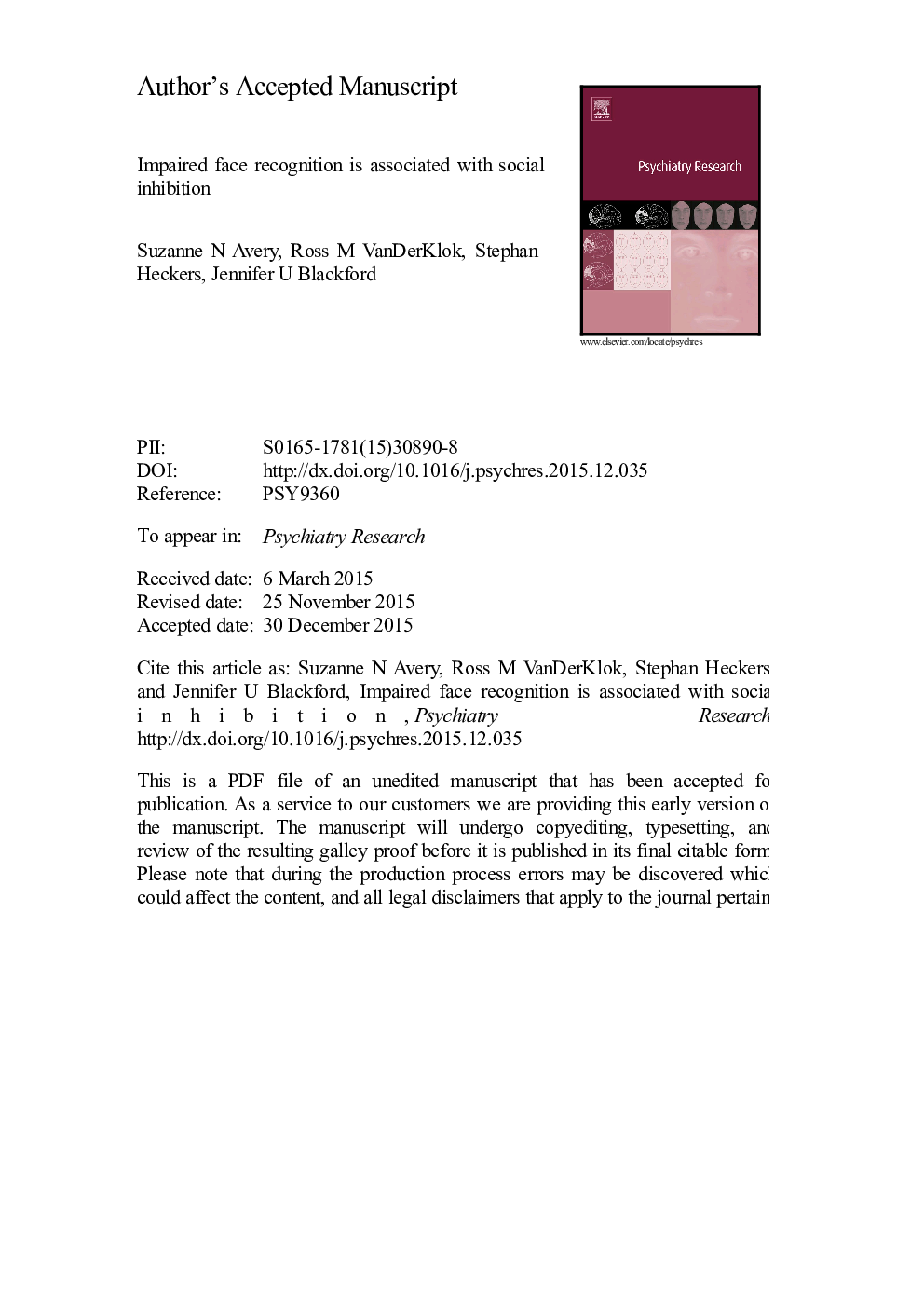| Article ID | Journal | Published Year | Pages | File Type |
|---|---|---|---|---|
| 6813643 | Psychiatry Research | 2016 | 21 Pages |
Abstract
Face recognition is fundamental to successful social interaction. Individuals with deficits in face recognition are likely to have social functioning impairments that may lead to heightened risk for social anxiety. A critical component of social interaction is how quickly a face is learned during initial exposure to a new individual. Here, we used a novel Repeated Faces task to assess how quickly memory for faces is established. Face recognition was measured over multiple exposures in 52 young adults ranging from low to high in social inhibition, a core dimension of social anxiety. High social inhibition was associated with a smaller slope of change in recognition memory over repeated face exposure, indicating participants with higher social inhibition showed smaller improvements in recognition memory after seeing faces multiple times. We propose that impaired face learning is an important mechanism underlying social inhibition and may contribute to, or maintain, social anxiety.
Related Topics
Life Sciences
Neuroscience
Biological Psychiatry
Authors
Suzanne N. Avery, Ross M. VanDerKlok, Stephan Heckers, Jennifer U. Blackford,
